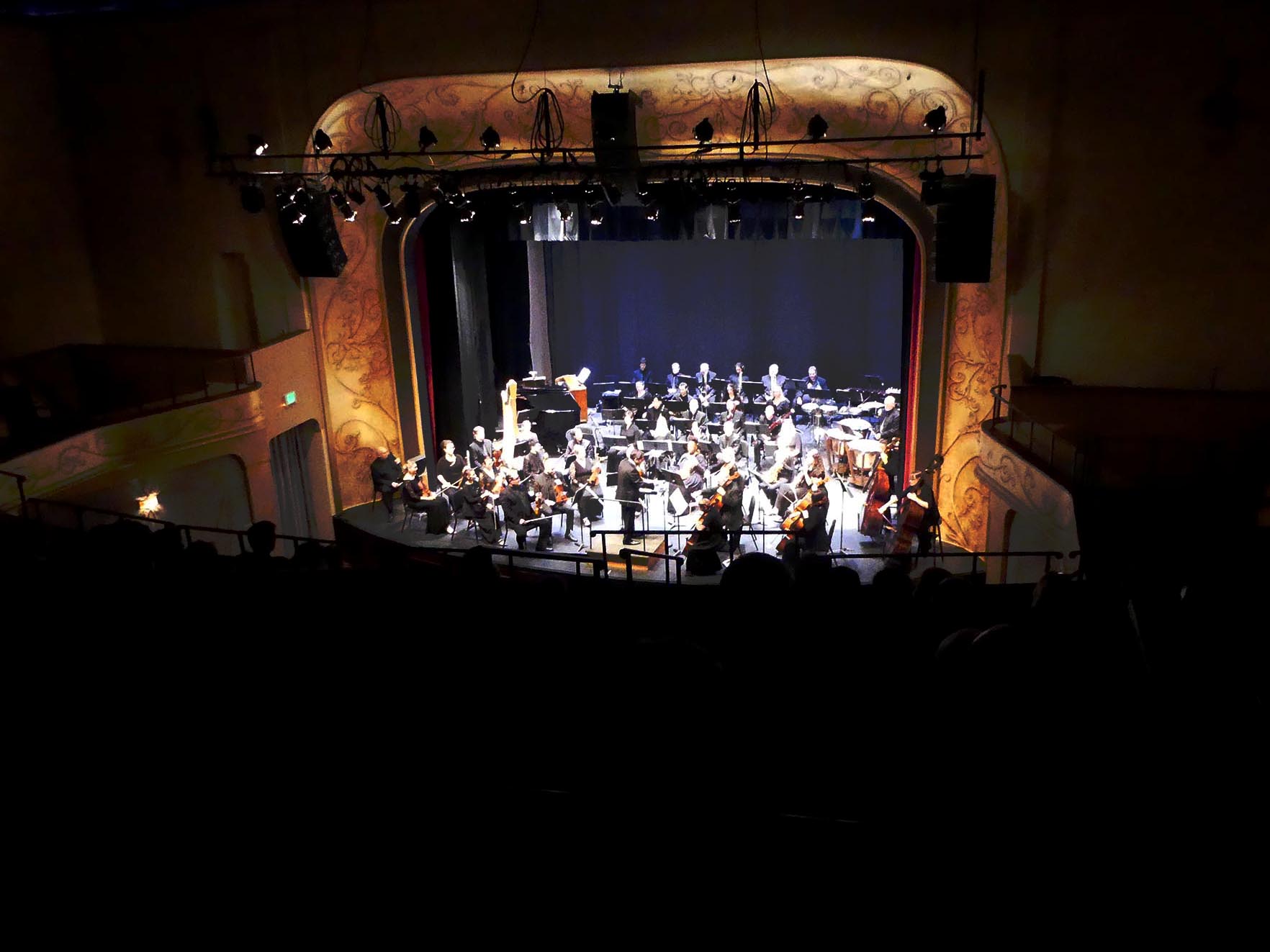We are so glad you’ve come to this page on our website! That means you are either thinking about joining us for a concert or have already purchased tickets and are looking for more information.

The Atlantic Classical Orchestra is excited to share the sounds of musical masters of past & present and we want your time with us to be a wonderful experience. Below is information on the more commonly asked questions about coming to a concert. Have a question not listed below? Simply send us email at info@aco-music.org and we will be happy to answer! Looking forward to seeing you at one or all of our concert!
The Atlantic Classical Orchestra serves communities along the Treasure Coast playing in Vero Beach (The Community Church of Vero Beach) and in downtown Stuart (Lyric Theatre).
The Atlantic Classical Orchestra plays from December through April.
In December we perform our holiday show, and January through April, we perform our Masterworks Series in Vero Beach and Stuart. In Vero Beach, we present one performance each month, and in Stuart we perform a matinee and evening performance once each month.
We also perform three chamber concerts each season at the Vero Beach Museum of Art and the Elliott Museum in Stuart.
The Atlantic Classical Orchestra is a chamber orchestra. That means we model ourselves after the orchestras that played in Haydn, Mozart and Beethoven’s time (but don’t limit ourselves to that repertoire only!) Picture a period of powdered wigs and itchy woolens. Those composers wrote orchestra music that was meant to be heard not in a big concert hall – but in the private (yet really big and lavish) houses and castles of their patrons- in their music rooms and private chambers.
A typical chamber orchestra has a substantial contingent of strings (violins, violas, cellos, and basses) as well as pairs of flutes, oboes, clarinets, bassoons, horns, and trumpets. Those 42 or so players are often supplemented with timpani, other percussion, and often additional wind and brass players depending on the demands of the repertoire.
The Atlantic Classical Orchestra plays concert music – that is non-improvised, structured compositions. We play music that spans several centuries from Beethoven (whose genius carried into the 19th century as well) to pieces written in the 21st century.
The length of a concert depends upon the pieces being played. Traditionally the program lasts around two hours (like with movies, there is some variation). In most concerts that we perform there are three pieces: The first part of the concert usually begins with a brief opener (an overture), followed by a concerto (a work featuring a soloist out in the front of the orchestra – usually showing off). Then intermission (half time). The second half features the orchestra playing a long-form work – like a symphony (in several movements).
To clap or not to clap – well, that depends. When these masterworks made their premiere, audiences were more vocal and participatory. They often made spontaneous displays of approval or disapproval. There was booing (please don’t bring that tradition back), and there was applause. Lots of each, and often. Symphonies, with their multiple movements, once gave audiences ample time to clap between them (or boo). At the premiere of a Beethoven symphony, the audience went so totally nuts after a middle movement that Beethoven repeated the movement right then and there!
Comfort is key. We want you to be relaxed and enjoy the music. Some of our patrons enjoy dressing up and making an evening of the symphony. Others come in casual yet respectable clothing.
A few ways. On our website, we have Spotify playlists on all of our concert pages. You can listen from your computer or iPad, or you can download the Spotify App and take us on the go.
While we listen to music on our cell phones and we are pretty sure that Beethoven would own one in today’s world, phones don’t have a place in the score. Make sure you turn them off or put them in silent mode. The time at the symphony is your time with your orchestra and that phone call from your mom or your best friend can wait. Or better yet, bring them along!
A copy of the official registration and financial information may be obtained From the Florida Division of Consumer Services by calling toll-free (800-435-7352) within the state or visiting www.fdacs.gov. Registration does not imply endorsement, approval, or recommendation by the State.
Atlantic Classical Orchestra
2145 14th Avenue. Suite 20B
Vero Beach, Florida, 32960
Office: 772-460-0850
Hours: Monday – Thursday 9:00 AM – 5:00 PM | Friday 9:00 AM – 3:00 PM
Dates, times, prices, programs, and artists are subject to change.
Box Office: 772-460-0851
Email: boxoffice@aco-music.org